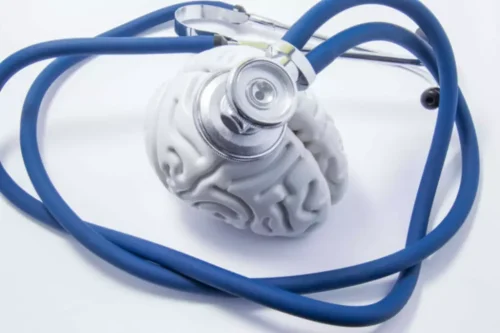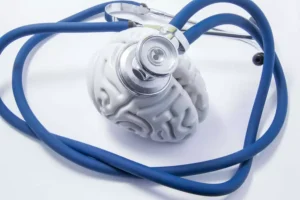Unravelling the complexities of trauma in people with substance use problems The University of Sydney

Because of the underrepresented female sample, we performed post hoc analysis to confirm the consistency of the observed findings. Explaining your decision to friends is a vital step in your journey towards a more empowered, healthier you. It’s important to frame it positively to help your loved ones understand your motivations better.
The impact of alcohol misuse in trauma patients: A scoping review protocol

Alcohol can provide temporary relief from these distressing experiences, leading to a pattern of reliance on substance use as a coping mechanism. In many cases, those with PTSD may resort to alcohol to cope with symptoms they find unbearable. While alcohol initially offers a sense of relief, it eventually compounds the problem, trapping individuals in a cycle of trauma, alcohol usage disorders, and deteriorating mental health. And of course, if someone is using alcohol to mask the symptoms of PTSD, that means they may go longer without realising they have PTSD, so the root cause of the symptoms goes untreated. First, it leads to improved treatment outcomes, as addressing the underlying trauma can reduce the risk of relapse and promote more sustainable recovery from alcohol addiction. We utilize a treatment framework, which allows us to simultaneously address both trauma-related disorders and alcohol use disorder.
Empowering Your Mental Health Journey
It is an evidence-based approach that provides hope and healing for these two disorders. Additionally, this therapy approach recognizes the impact of trauma on relationships and daily functioning. It aims to improve social and interpersonal skills, helping individuals cultivate healthier relationships and enhance their overall quality of life. Trauma-Focused Therapy is crucial in treating individuals with co-occurring Complex PTSD and Alcohol Use Disorder (AUD). Additionally, co-occurring disorders increase the risk of self-harm, suicide, and accidents related to substance abuse. The combination of trauma-related symptoms and alcohol misuse can impair judgment and lead to risky behaviors.
Unique Treatment Considerations
SoberBuzz founder, Kirsty, has been journaling her gratitude every day since she stopped drinking, and she attests that it’s the most powerful tool for self-care and self-compassion. Dedicate a moment each day, whether in the morning or at night, to jot down five things you’re grateful for. This practice will help you shift your focus towards self-compassion, nurturing a positive outlook on your journey. By shifting your focus to these positive actions, you can dissipate the desire to drink and naturally boost your serotonin levels. At PTSD UK, we are excited to join forces with SoberBuzz to extend our support to people dealing with https://ecosoberhouse.com/ PTSD or C-PTSD who are seeking to take control of their alcohol consumption. The valuable hints and tips that follow are a result of our partnership with SoberBuzz, aimed at empowering you on your path to well-being.

Anyone who experiences negative consequences due to alcohol use deserves Alcohol Use Disorder support and the opportunity to make positive changes. Equally, going through trauma can lead to an alcohol use disorder, whether or not you develop PTSD. But if you or someone you know has PTSD, an alcohol usage disorder or both, it’s important to get support.

Definition of Complex Trauma and Alcohol Use Disorders

While alcohol may provide temporary relief, it can ultimately exacerbate the symptoms of PTSD and hinder recovery progress. One 2020 study explored the direct and indirect links between types of childhood trauma to PTSD and alcohol misuse. CPTSD is a subtype of PTSD that develops in response to prolonged, repeated traumatic experiences, typically lasting months or years. Being involved in a car accident is a stressful event that can involve complex legal issues concerning liability and injuries. If you find yourself in this situation, the best thing that you can do is to talk to an attorney right away. An experienced car accident attorney can help you understand your rights during this difficult time.
Complex PTSD and Alcohol: Addressing the Challenges of Co-occurring Disorders
- People with complex post-traumatic stress disorder (CPTSD) often experience chronic emotional distress.
- Moreover, there is a dearth of knowledge on the relationships between PTSD and other psychiatric conditions in non-Western settings.
- Often overlooked, post-traumatic stress disorder (PTSD) tends to be a major cause of alcoholism.
- These statistics highlight the need for comprehensive treatment strategies for individuals dealing with both conditions.
- It is an evidence-based approach that provides hope and healing for these two disorders.
Integrated treatment approaches for PTSD and alcohol abuse should address both mental health and substance abuse simultaneously. This comprehensive approach recognizes the intertwined nature of these disorders and ensures unified and coordinated care. For those suffering from complex PTSD and alcohol abuse, integrated treatment approaches work best. It’s because they address both conditions simultaneously to ensure complete recovery. It is crucial for individuals, especially military veterans and those with substance use disorder, to prioritise seeking treatment for both PTSD and alcohol dependency concurrently. Addressing the challenges of co-occurring Complex PTSD and AUD requires integrated treatment approaches that target both disorders simultaneously.

- Furthermore, mental health conditions and substance use disorders can perpetuate one another, resulting in a cycle of negative consequences.
- The result is a cycle in which trauma drives alcohol use, and alcohol use, in turn, intensifies the effects of trauma.
- Besides therapies, patients are also prescribed some medicines, depending on the severity of their condition.
- CPTSD is a subtype of PTSD that develops in response to prolonged, repeated traumatic experiences, typically lasting months or years.
- Evidence-based behavioral interventions for AUD include relapse prevention, contingency management, motivational enhancement, couples therapy, 12-step facilitation, community reinforcement, and mindfulness.
One aspect to consider is the impact of childhood trauma on the development of Complex PTSD. Research suggests that traumatic experiences during childhood, such as abuse or neglect, greatly contribute to later development of this condition. It is important to acknowledge the lasting effects of childhood trauma and understand how it shapes experiences and behavior. Understanding the complex relationship between Alcohol Usage Disorder and PTSD is a vital step towards recovery. It’s not about conforming to outdated stereotypes of “alcoholism” but recognising that problematic drinking exists along a broad spectrum.
- However, several barriers exist that hinder effective treatment, such as stigma, lack of awareness, and limited access to specialized resources.
- Due to the expected variability of the reporting of outcomes, a meta-analysis will not be performed.
- It’s important to remember that self-care and coping strategies may vary between individuals.
- Behavioral intervention is considered a first-line approach in the treatment of PTSD.
- Trauma, broadly defined as a deeply distressing or disturbing experience, can have long-lasting effects on an individual’s mental health and well-being.
What is Alcohol Use Disorder?
According to research, almost 60% to 80% of veterans who sought PTSD treatment also reported problems with alcohol misuse. There is a strong link between trauma exposure and SUD, with studies showing that individuals who have experienced physical or sexual abuse are more likely to report substance misuse. Substance use can be seen as self-medication ptsd alcohol blackout for PTSD symptoms, as individuals try to numb out distress or avoid confronting trauma. Incorporating trauma-focused therapy into treatment plans increases the chance of overcoming challenges and achieving lasting recovery for those with co-occurring Complex PTSD and AUD.


